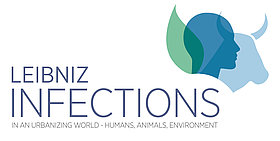Leibniz Research Alliances
Leibniz Research Alliances are an instrument of internal networking. Within Leibniz Research Alliances Leibniz institutions work together in interdisciplinary and transdisciplinary teams to investigate topical issues of great relevance to science and society. They pursue the goal of bundling complementary competences of participating institutes and thus pave the way for particularly successful research projects with a high degree of radiance. They provide central contacts for politics and business, funding agencies, the media and civil society. Leibniz research alliances are open to cooperation with universities, other non-university research and infrastructure facilities, international research groups and partners from industry.
ATB has initiated one research alliance and was actively involved in three other research alliances of the Leibniz Association.
Here is a brief overview of the alliances in which ATB is currently involved:
Leibniz-Forschungsverbund INFECTIONS

Leibniz Research Alliance 'INFECTIONS in an Urbanizing World - Humans, Animals, Environments" unites 18 Leibniz institutions and 3 external partners. It continues the successful work of the INFECTIONS'21 alliance. The research focus is on the spread of antimicrobial resistant microbes in an increasingly urbanised society. Through its highly interdisciplinary and collaborative research agenda, it aims to develop long-term synergies to advance current knowledge, contribute to the development of countermeasures and provide policy recommendations. Contact ATB: Prof. Dr. Thomas Amon
